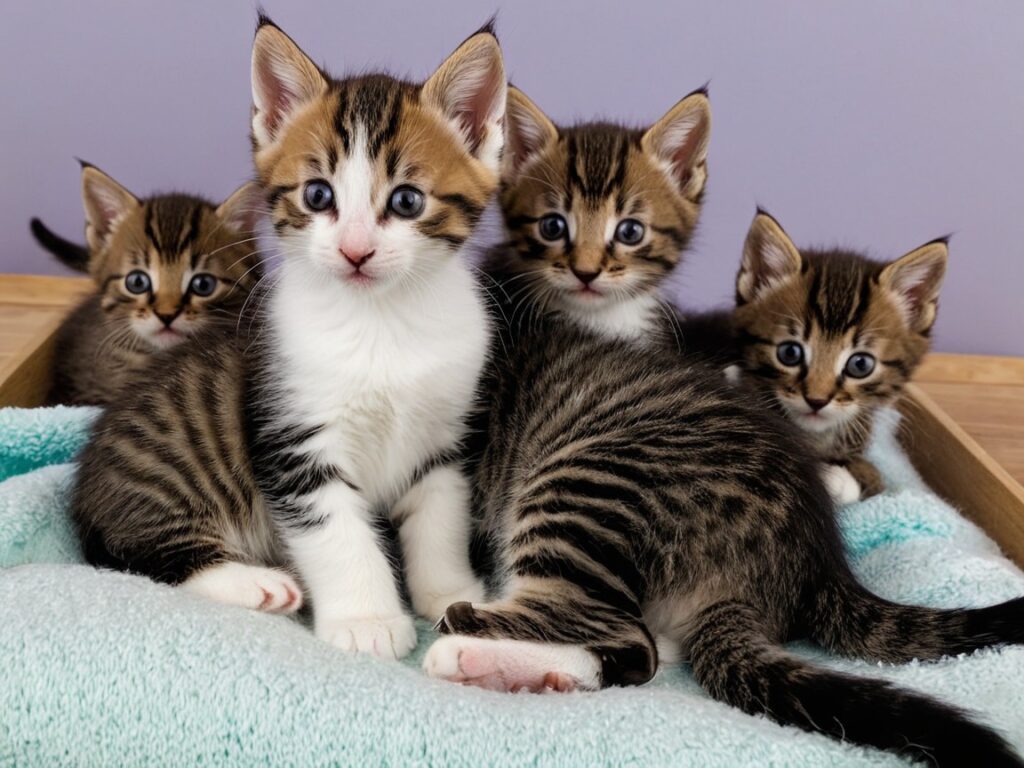What Are FIV Tests and Why Are They Important for Kittens?
Feline Immunodeficiency Virus (FIV). The term itself can sound daunting, especially to a new kitten owner. Understanding what FIV is, how it affects cats, and, most importantly, the role of FIV tests is crucial for responsible pet ownership. Protecting your feline companion’s health begins with knowledge, and this article aims to provide you with a comprehensive overview of FIV testing for kittens.
What is FIV?
FIV is a retrovirus that affects cats, similar to HIV in humans, but it cannot be transmitted to humans or other animals. It weakens the cat’s immune system, making them more susceptible to various infections and diseases. The virus is primarily transmitted through deep bite wounds, making outdoor cats and those that engage in fighting more at risk. Mother cats can also transmit FIV to their kittens, either during pregnancy, birth, or through their milk.
The course of FIV infection can be divided into several stages:
- Acute Phase: This initial stage may involve mild symptoms like fever, lethargy, or swollen lymph nodes. However, these symptoms often go unnoticed, leading to a delay in diagnosis.
- Asymptomatic Phase: After the acute phase, the cat may enter a prolonged asymptomatic phase, lasting for months or even years. During this time, the cat appears healthy, but the virus is still active in their body.
- Symptomatic Phase (Feline AIDS): Eventually, the weakened immune system can no longer fight off infections effectively, leading to the symptomatic phase, also known as feline AIDS. Cats in this stage are prone to various health problems, including chronic infections, weight loss, persistent fever, and certain types of cancer.
Understanding FIV Tests
An FIV test is a diagnostic tool used to detect the presence of FIV antibodies in a cat’s blood. Antibodies are proteins produced by the immune system in response to a foreign substance, such as a virus. The most common type of FIV test is the ELISA (Enzyme-Linked Immunosorbent Assay) test, which can be performed quickly and easily in a veterinary clinic. A positive ELISA test indicates that the cat has been exposed to FIV and has produced antibodies against it.
-
ELISA Tests: The ELISA test is the most common and readily available. A small blood sample is taken, and the test can usually provide results within minutes.
-
Western Blot Tests: If an ELISA test result is ambiguous or requires further confirmation, a Western blot test may be performed. This test is more specific and can help rule out false-positive results.
-
PCR (Polymerase Chain Reaction) Tests: PCR tests detect the virus’s genetic material (DNA) directly. This test can be particularly useful in very young kittens, as it can differentiate between kittens who are truly infected and those who may have received maternal antibodies.
Why Are FIV tests Important for Kittens?
Testing is extremely crucial for kittens for several reasons:
-
Maternal Antibodies: Kittens born to FIV-positive mothers may receive antibodies through the placenta or milk. These antibodies can persist in the kitten’s system for several months, leading to a false-positive result on an ELISA test. Therefore, it’s recommended to test kittens initially, and then retest them after six months of age, when maternal antibodies have faded. A PCR test before 6 months can also be helpful, as mentioned earlier.
-
Early Detection and Management: Early detection of FIV allows for prompt veterinary care and management. While there’s no cure for FIV, proper care, including regular check-ups, a balanced diet, and prompt treatment of secondary infections, can significantly improve the cat’s quality of life and extend its lifespan.
-
Preventing Spread: Identifying FIV-positive kittens helps prevent the spread of the virus to other cats. Responsible owners can take precautions, such as keeping FIV-positive cats indoors, to minimize the risk of transmission.
-
Making Informed Decisions: Knowing a kitten’s FIV status allows prospective owners to make informed decisions about adoption and care. Adopting an FIV-positive cat is a loving and compassionate choice, but it’s essential to be prepared for the specific needs of an FIV-positive cat.
When Should a Kitten Be Tested?
Ideally, a kitten should be tested for FIV at least twice:
-
Initial Test: Perform an initial ELISA test early in the kitten’s life, but be aware of the possibility of maternal antibodies influencing the results. A PCR test can be helpful at this stage.
-
Follow-Up Test: Retest the kitten after six months of age to confirm the FIV status. This allows sufficient time for maternal antibodies to disappear.
What To Do if Your Kitten Tests Positive
A positive FIV test can be upsetting, but it’s important to remain calm and consult with your veterinarian. Here’s what you should do:
- Confirm the Diagnosis: If the initial test was an ELISA, consider a Western blot to confirm the results, especially if the kitten is young
- Veterinary Care: Establish a regular check-up schedule with your vet. Early detection and treatment of any secondary infections or other health problems is paramount.
- Indoor Lifestyle: Keep your FIV-positive kitty indoors to prevent spreading the virus to other cats and to minimize their exposure to infectious diseases that their weakened immune system might have difficulty fighting.
- Nutrition: Provide a high-quality diet that supports a healthy immune system. Your vet may recommend specific dietary modifications or supplements.
- Monitor for Symptoms: Stay vigilant for any signs of illness, such as fever, lethargy, weight loss, or persistent infections. Seek veterinary attention promptly if you notice any concerning symptoms.
- Love and Care: An FIV-positive cat can still have a long and happy life with proper care and attention. Offer them plenty of love, stimulation, and a comfortable environment.
Conclusion
FIV tests are an essential tool for ensuring the health and well-being of your kittens. Understanding the implications of FIV and taking proactive steps to test and manage the condition can make a significant difference in your cat’s quality of life. Remember, a positive FIV diagnosis is not a death sentence. With responsible care and a loving home, FIV-positive cats can live long, happy, and fulfilling lives. Always consult with your veterinarian for personalized advice and guidance on managing your kitten’s health.

